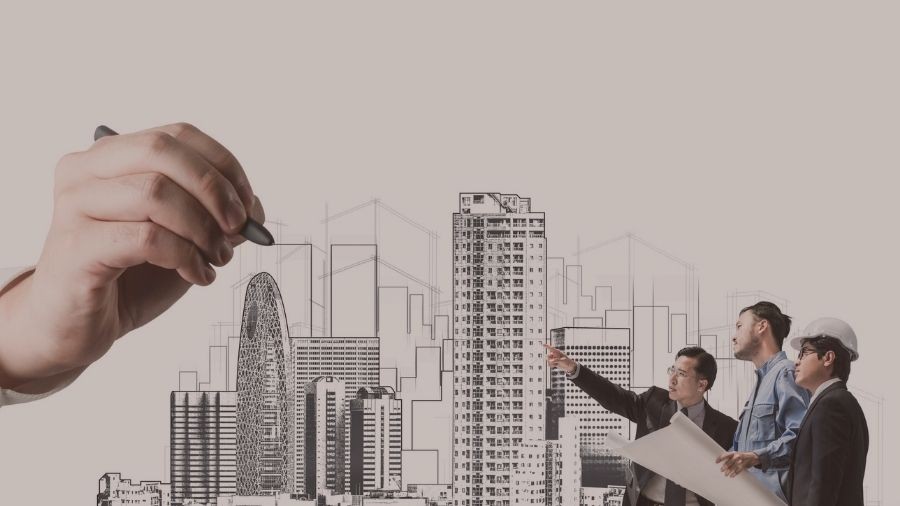Evolution of Sustainable Construction and Real Estate Products Shaping Green Industry Solutions

The construction and real estate sectors are experiencing a profound transformation as sustainability becomes a primary focus. Environmental responsibility is no longer an option but a necessity for businesses and professionals in these industries. Consumers are increasingly demanding greener alternatives, driving the need for eco-friendly practices in construction and real estate. This shift is influencing how buildings are designed, constructed, and managed. Sustainable construction and real estate products are setting new standards, not only in terms of reducing environmental impact but also in offering long-term economic and social benefits.
The construction industry has long been known for its significant environmental footprint, contributing to carbon emissions, waste generation, and energy consumption. However, the adoption of sustainable practices is gaining momentum, with a focus on reducing carbon emissions, minimizing waste, and using renewable resources. The use of eco-friendly materials such as recycled steel, bamboo, and energy-efficient concrete is now becoming more common in construction projects around the world.
What sets sustainable construction apart is its potential to significantly lower the environmental footprint of buildings from the design phase to the final stages of development.
The article, The Evolution of Sustainable Construction and Real Estate Products, explores how the industry is adapting to these changes and highlights the importance of sustainable solutions. It provides valuable insights for readers interested in the latest developments in eco-friendly construction materials and techniques, while also looking ahead to the future of green building and how emerging technologies could further transform the sector. To read more, follow this link: The Evolution of Sustainable Construction and Real Estate Products.
In the real estate industry, sustainability is also taking center stage, with developers and property owners increasingly focusing on energy-efficient buildings and eco-friendly construction methods. Green real estate is no longer a niche market but a growing part of the broader industry. Energy-efficient buildings, smart home systems, and sustainable urban development are becoming integral components of modern real estate projects.
Energy efficiency plays a key role in this transition. Smart buildings equipped with advanced energy management systems are designed to optimize energy consumption, reduce waste, and lower operational costs. Renewable energy sources such as solar panels and wind turbines are also being integrated into new developments, reducing reliance on non-renewable resources.
In addition to energy efficiency, the use of sustainable materials is becoming more widespread. Developers are turning to eco-friendly options like reclaimed wood, low-VOC (volatile organic compounds) paints, and recycled insulation. These materials not only help reduce the carbon footprint of buildings but also contribute to healthier indoor environments for occupants.
Sustainable real estate offers several benefits beyond environmental impact. Investors are increasingly drawn to green properties for their potential long-term savings and enhanced property value. Energy-efficient buildings typically come with lower utility costs and reduced maintenance requirements, making them more appealing to buyers and tenants. Moreover, many regulatory bodies are now offering incentives for green building practices, including tax breaks and expedited permit processes.
The article highlights these economic and social benefits of sustainable real estate products, emphasizing the growing importance of eco-conscious practices. As the real estate industry continues to evolve, professionals who stay informed about these trends will be better positioned to meet the needs of environmentally conscious consumers and navigate future challenges.
Innovations in technology are also driving sustainability in construction and real estate. Prefabricated and modular construction methods are becoming more popular for their efficiency and reduced waste. Prefabrication allows for precise control over materials and labor, leading to less waste and faster completion times. This method also reduces energy consumption during the building process.
In the real estate sector, smart home technology is revolutionizing how buildings are designed and operated. From automated lighting and heating systems to smart water management solutions, these innovations enhance energy efficiency and reduce the environmental impact of homes and commercial properties. Smart buildings use sensors to monitor and adjust energy usage in real time, ensuring optimal efficiency throughout the day.
Sustainable urban planning is another critical aspect of the industry’s transformation. Urban planners are increasingly focusing on creating eco-friendly neighborhoods that promote walking, cycling, and the use of public transportation. Green roofs, rainwater harvesting systems, and renewable energy sources are being incorporated into urban designs to create more sustainable and livable spaces.
For readers looking to explore how these innovations are shaping the future of construction and real estate, The Evolution of Sustainable Construction and Real Estate Products offers an in-depth analysis of these trends and provides practical examples of how they are being applied. Follow the link to read more: The Evolution of Sustainable Construction and Real Estate Products (https://nextnews24.com/evolution-sustainable-construction-real-estate-products).
As sustainability continues to take hold in construction and real estate, it is clear that businesses must adapt to meet both regulatory requirements and consumer expectations. Adopting green building practices, energy-efficient technologies, and sustainable materials is not only environmentally responsible but also offers long-term financial benefits.
The article provides a comprehensive look at the evolution of sustainable practices in these industries and offers actionable information for professionals looking to stay ahead of these changes. Whether you are a developer, builder, or real estate investor, understanding the latest trends in sustainability is essential for future success.
For more details on how sustainability is reshaping the construction and real estate industries, click here: The Evolution of Sustainable Construction and Real Estate Products (https://nextnews24.com/evolution-sustainable-construction-real-estate-products).
